
On 23 October, FGBMF had the pleasure of hosting a group of brothers from FGBMFI who joined them for their 5th Revival Lunch Meeting. Indeed, their presence was the highlight of the meeting, and Bro. Rudiyanto Jap, the National Youth Director of FGBMFI, Indonesia, was the one who shared the Word of God.
Before Bro. Rudiyanto gave his message, two Indonesian brothers, Aripin and Lou Tek Leong, shared their testimonies of how God changed their lives, brought salvation, healing, and the joy of service into their lives through FGB.
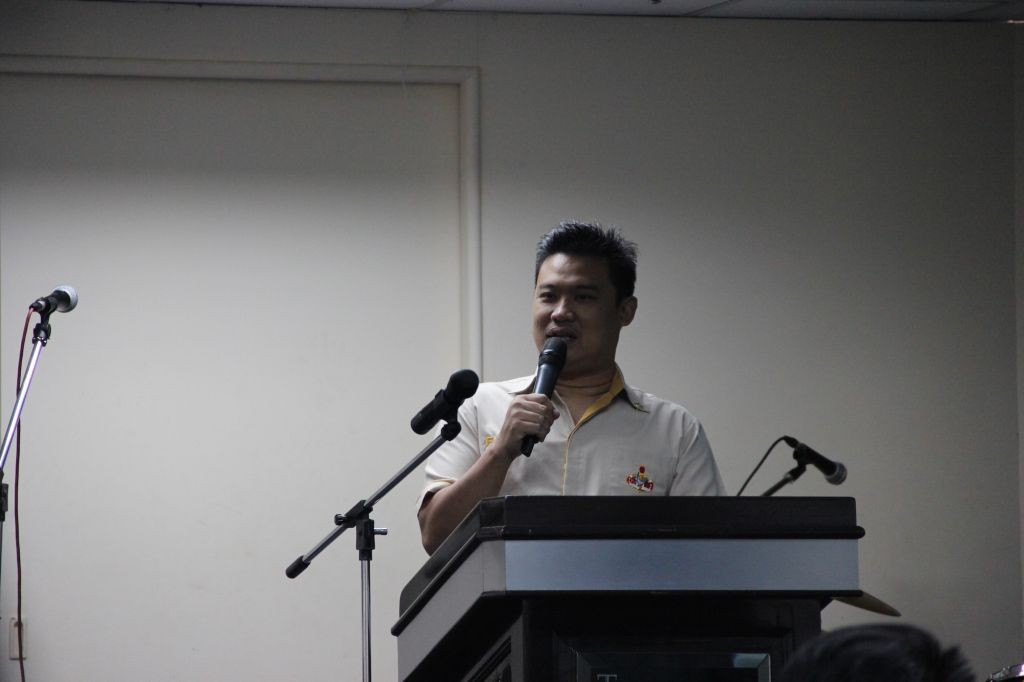
Bro. Rudiyanto then spoke about facing conflict in our lives and dealing with them in the right way. He began by relating a recent incident that took place a few months ago while he was in Singapore with his wife and three sons.
“It was early in the morning and I was in a very happy mood. We were having breakfast at our favorite hawker center. I ordered my favorite food. The food came, we prayed, and then just as I was about to eat, a cleaning lady came and parked a cartful of rubbish on my left.
“I was shocked, but I thought, ‘It’s ok. You’re in a good mood.’” Bro. Rudiyanto looked at her, expecting her to move the cart so that he could get started on his meal, but she left it there. She went to other tables, got more rubbish, brought it back and threw it into the cart next to him.
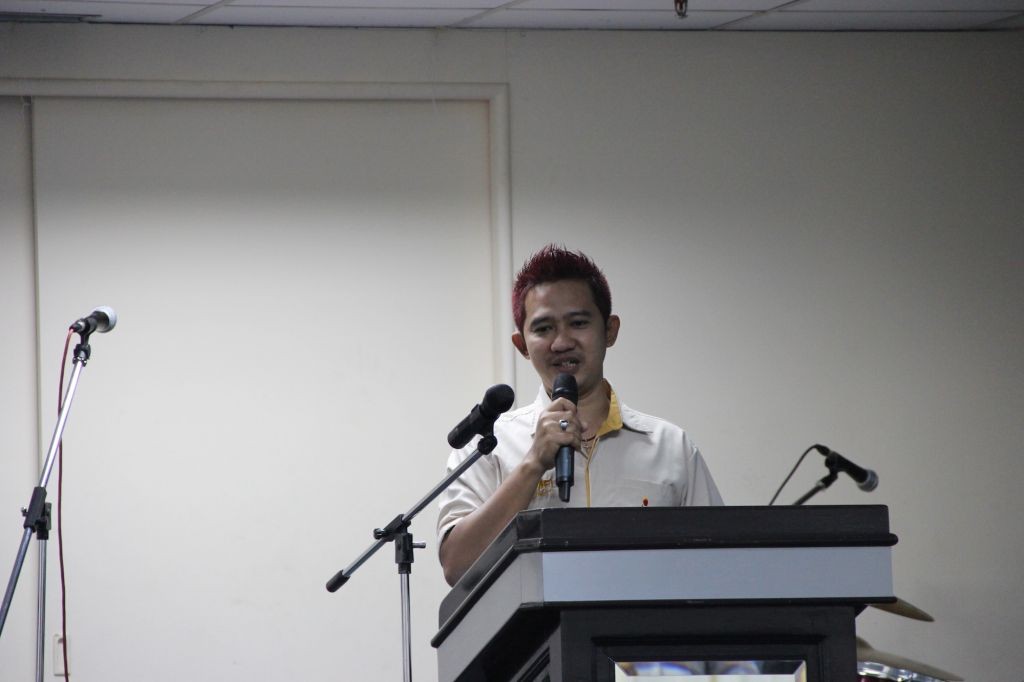
“One time, two times… I was getting mad. When I looked at other people, it seemed like they were silently encouraging me to go ahead and say something. So I couldn’t control myself anymore. I said, ‘Please, I am eating now. Please take it away.’ You know her response? ‘The food here is clean! No problem!’
“I raised my voice. I was so angry. I lost my mood. And then, my youngest boy looked at me and just said, ‘Daddy, daddy…’” That hit him hard. “I was so embarrassed. I was planning to have a good time. I should have been a good testimony…
“Brothers and sisters, we are not chasing conflict, but conflict looks for us. We are in the marketplace. We don’t want to have conflict, but it happens everyday of our lives. As Children of God, sometimes we fail. But we have to face it anyway.
“We must learn to live together as brothers or perish together as fools.” — Martin Luther King Jr.
“If we are in conflict with others, we are both losers. Even if we win, we will lose a friend, a connection, or an opportunity. If we cannot get along with people, as brothers, we will lose as fools.
“What do we live for, if it is not to make life less difficult for each other?” — George Eliot
“In Indonesia, we have a funny statement: ‘Buat apa dipermudah jika bisa dipersulit?’ It means, ‘Why make it easier if we can make it difficult for others?’ This happens in Indonesia. Maybe it happens here too. Maybe it happens in our daily life. We often meet people who make simple things complicated.
Then make me truly happy by agreeing wholeheartedly with each other, loving one another, and working together with one mind and purpose.
(Philippians 2:2)
If we have one mind and one heart, our lives would be much simpler. Conflicts may be there, but the difference is that we value our brotherhood more than the conflict.
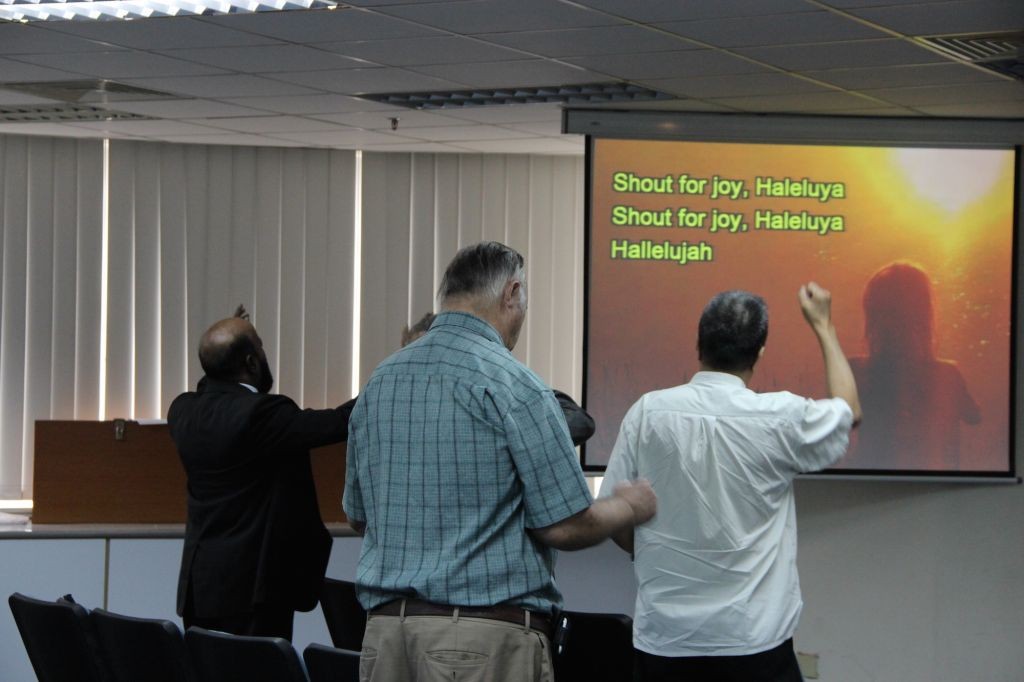
What is the cause of conflict?
1. Our Evil Desires.
1 Where do all the fights and quarrels among you come from? They come from your desires for pleasure, which are constantly fighting within you. 2 You want things, but you cannot have them, so you are ready to kill; you strongly desire things, but you cannot get them, so you quarrel and fight. You do not have what you want because you do not ask God for it. 3 And when you ask, you do not receive it, because your motives are bad; you ask for things to use for your own pleasures.
(James 4:1-3)
2. Our pride.
Because of pride, we want better service; we require people to treat us better; we think that we are better than others. So many times, conflict is caused by pride. Whether we realize it or not, our pride gets in the way.
Arrogance causes nothing but trouble. It is wiser to ask for advice.
(Proverbs 13:10)
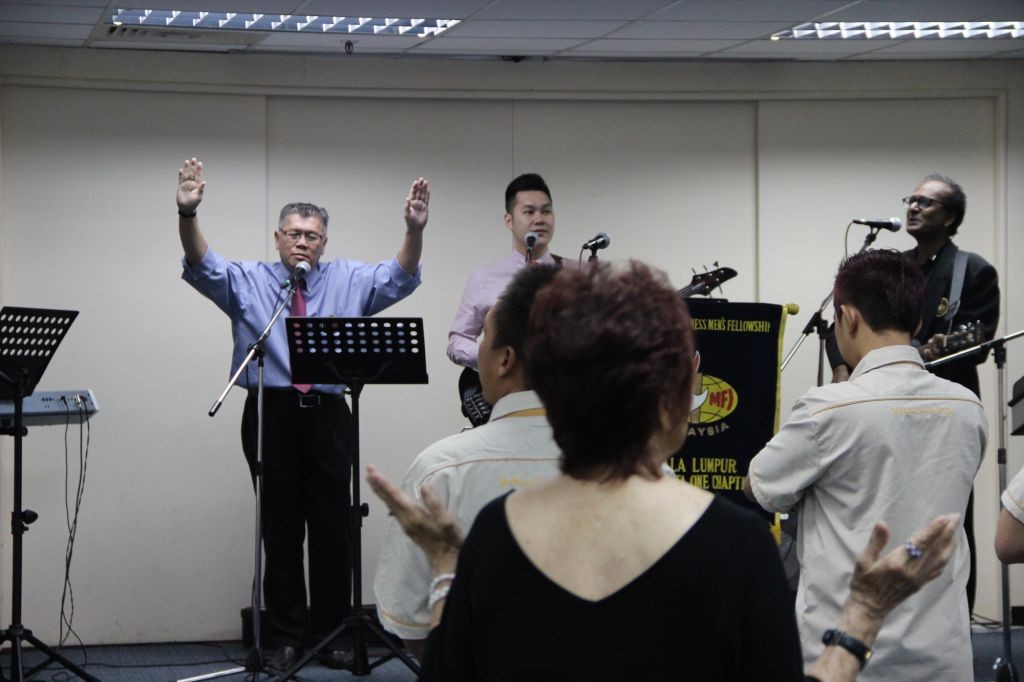
In every conflict, there are three roles that people play:
1. The Conflict Maker
We see this in the marketplace: People who create problems wherever they go. If we have conflict with everyone, we need to ask ourselves, ‘Who is the problem maker?’ I could be the problem maker. Some people cannot live peacefully when there is no conflict. When there is no conflict or it gets too quiet. So stir up trouble.
2. The Conflict Avoider.
These are the people who do not want to deal with conflict. When there is conflict, they go away. Their motto is: Let time solve the problem. However, this could sometimes create bitterness.
3. The Conflict Solver.
These are the people who cannot live with conflict. They want to solve the problem as soon as possible. The problem is, they often lack wisdom. They want to solve it their own way, and sometimes end up creating more problems.
All of us can be any one of these—depending on the situation. When we face someone like our boss, maybe we become Conflict Avoiders. But when we face someone below us, we may want to be the Conflict Solver and begin to dictate how things should be done.
We should not be afraid of conflict, but we should be afraid of unresolved conflict. Unresolved conflict costs us our relationship with God. It blocks our fellowship with Him. The Bible says it clearly:
If we say we love God, but hate others, we are liars. For we cannot love God, whom we have not seen, if we do not love others, whom we have seen.
(1 John 4:20)
23 So if you are about to offer your gift to God at the altar and there you remember that your brother has something against you, 24 leave your gift there in front of the altar, go at once and make peace with your brother, and then come back and offer your gift to God.
(Matt 5:23-24)
Unresolved conflict also causes bitterness, and bitterness causes sickness. We have a brother in Medan who works with the sick. A few days a week, he will visit various patients. He has shared that many times, the root of a person’s sickness is bitterness. When he ministers to them and when they forgive, they are either cured, or have peace.

How do we resolve conflict?
1. Be humble.
It doesn’t matter whether we have been offended or if we offended others. Right or wrong, both of us are part of the conflict. Two hands are needed to clap. We are both victims. If we cannot humble ourselves, there is no solution.
Don’t do anything from selfish ambition or from a cheap desire to boast, but be humble toward one another, always considering others better than yourselves. (Philippians 2:3)
The problem is that we play blaming games. When conflict happens, it is because of you, and you, and this, and that. We have so many excuses. But if we humble ourselves, things become simple. When we treat others better than ourselves, it is easier for us to give in.
“In Indonesia we have a term: Seng Waras Ngalah. It means that those who are of sound mind give in.” Sometimes, we have conflict with people who cannot understand, no matter how much we argue with them. Bro. Rudiyanto told a story of two young boys. The first boy said, 2X3=6. The second boy said, no! 2X3=5. They fought about it. Finally, they went to their teacher and asked, which is true? The teacher told the first boy, “2X3=6. That is correct. But knowing that he is wrong, why did you have to argue with him?”
“So many times in our lives, we meet people who say 2X3=5,” Bro Rudiyanto said. “No matter what we say, they don’t understand. They only want to listen to what they want to hear. It becomes so stressful and we get angry. So, seng waras ngalah. If we are not crazy, give in. We don’t have to fight with these kinds of people. We humble ourselves.”
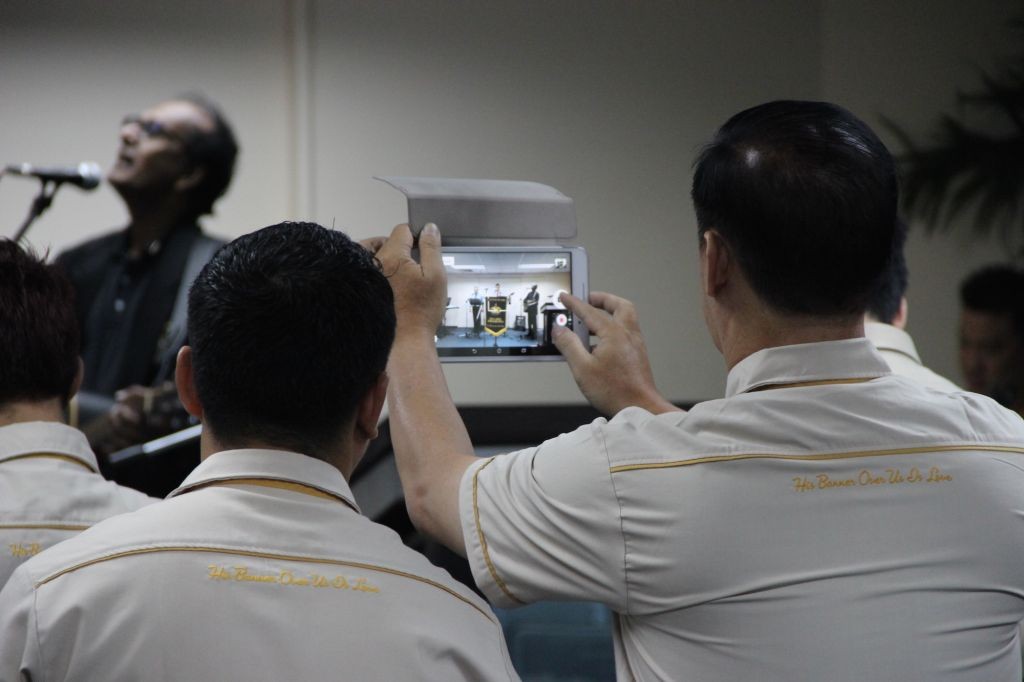
2. Ask for wisdom.
People often avoid conflict because they don’t know what, how, or when to say something. People often try to solve conflict, but they say the wrong words at the wrong time in the wrong way. Ask for wisdom!
But if any of you lack wisdom, you should pray to God, who will give it to you; because God gives generously and graciously to all
(James 1:5)
Ask for wisdom from God. When God gives you wisdom, it becomes so easy.
Instead, by speaking the truth in a spirit of love, we must grow up in every way to Christ, who is the head.
(Ephesians 4:15)
How we say things matter. Hard truth without love causes problems. We want to solve the problem—not humiliate people. A friend may have a problem, but if we say something in front of everybody, it will cause even bigger problems. We should say it in private—one–to-one.
We also need to watch our tone of voice. If we say one thing, but our tone says another, the conflict will not be resolved. As men, we easily lose our cool. But how we handle it, knowing how and what to say when it needs to be said will solve the problem or make it worse.
Remember this, my dear friends! Everyone must be quick to listen, but slow to speak and slow to become angry.
(James 1:19)
“A friend told me: If you want to win an argument, it’s simple. Just keep talking and talking. Don’t let them talk. When they talk you talk. Talk until they cannot talk. This happens. We don’t let other people talk. We cut them off here and there.”
But the Bible says, listen more, talk less. Listen, not hear. When we listen well, we understand what is behind the problem and we can deal with it accordingly.
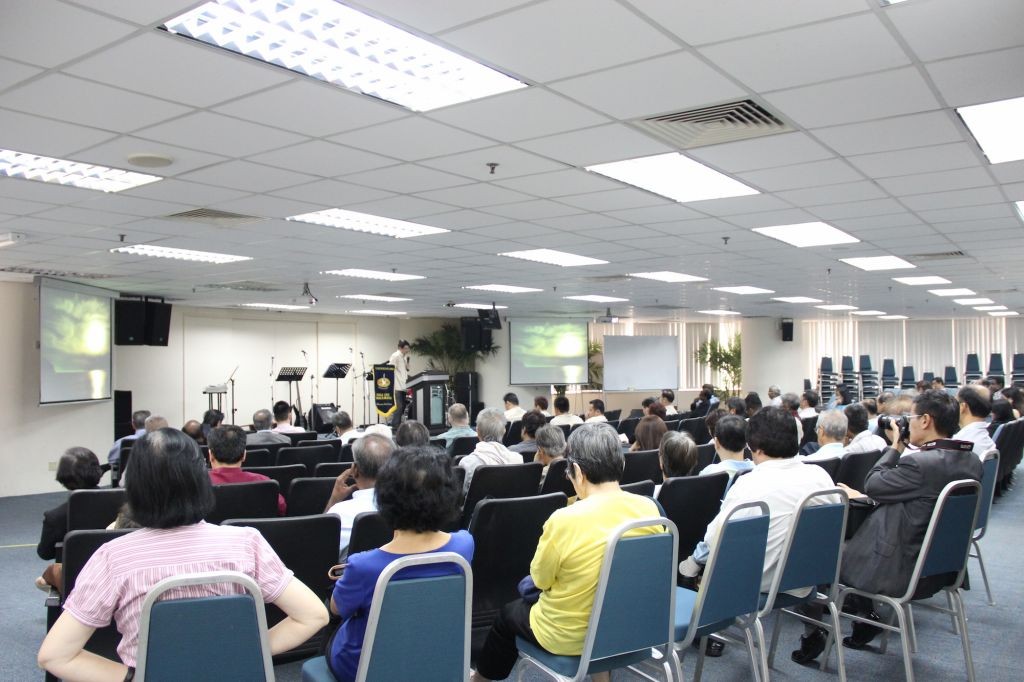
3. Focus on the conflict; not the person.
Focus on the root, not the results. Attack the problem, not the person. When we seek reconciliation, we are not judging right or wrong. Really focus on the solution. Think about the goodness. And think about the damage.
So many people don’t think about the damage when they have conflict. Explain your anger, rather than express it. We know how to express our anger, but nobody knows why we’re angry. When we explain our anger, it helps others understand. When we sit down and try to understand, we usually realize that the problem is really not that big.
4. Forgive.
It’s easy to say, but difficult to do.
“Forgiveness does not change the past, but it does enlarge the future.” —Paul Boese
Make allowance for each other’s faults, and forgive anyone who offends you. Remember, the Lord forgave you, so you must forgive others.
(Colossians 3:13)
Be tolerant of one another and forgive. Jesus said, “Forgive them, for they do not know what they do.” The saying goes, forgive and forget. But it possible to forget? “From my experience, I forgive but not forget,” Bro. Rudiyanto said. “However, if I really have forgiven, the sting will not hurt me anymore. I still remember, but the sting is not there anymore.”
How do we resolve conflict? Humble ourselves, ask God for wisdom, focus on the conflict; not the person, and finally, truly forgive.
|Share The Good News|
Esperanza Ng




Leave a Reply